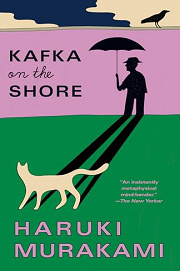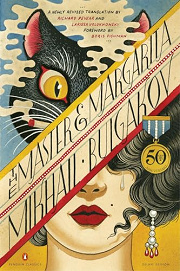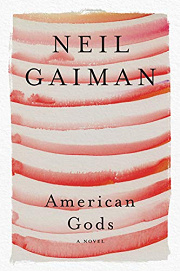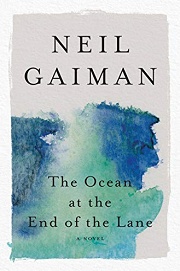Share your thoughts in a quick Shelf Talk!
Kafka on the Shore by Haruki Murakami
A runaway teen, a bookish drifter, and a chorus of talking cats and enigmatic strangers cross paths in a dreamlike odyssey where memory and fate blur. Surreal, tender, and myth-laced, Kafka on the Shore invites you to step into a world that feels like a riddle whispered by the sea.
Have you read this book? Share what you liked (or didn’t), and we’ll use your answers to recommend your next favorite read!
Love Kafka on the Shore but not sure what to read next?
These picks are popular with readers who enjoyed this book. Complete a quick Shelf Talk to get recommendations made just for you! Warning: possible spoilers for Kafka on the Shore below.
In Kafka on the Shore, did you enjoy ...
... the dreamlike, reality-bending strangeness—talking cats, uncanny visitations, and fate nudging ordinary lives off the rails?
The Master and Margarita by Mikhail Bulgakov
If you loved how Kafka Tamura’s journey keeps slipping into the unreal—Nakata chatting with cats, fish and leeches falling from the sky, Colonel Sanders popping up as a spectral fixer—then you’ll revel in the devil strolling through Moscow with a sardonic, giant cat in tow. Like the forest scenes and the “entrance stone,” Bulgakov’s surreal set pieces twist logic while feeling emotionally true, and the book balances mischief with genuine wonder much the way Nakata and Hoshino’s odyssey does.
... modern-day myth stitched into the everyday—old deities walking among us and shaping destiny?
American Gods by Neil Gaiman
Miss Saeki’s haunting song, the Oedipal shadow over Kafka’s choices, and spirits that quietly share our world all echo in Gaiman’s road novel of gods hiding in plain sight. If the way Shinto presences and legends brush against Kafka’s life intrigued you, you’ll enjoy following Shadow across backroads where ancient powers bargain, feud, and recruit—much like how the unseen forces tug at Kafka and Nakata from behind the curtain.
... a tender, uncanny journey of selfhood where childhood memories and otherworldly forces collide?
The Ocean at the End of the Lane by Neil Gaiman
If Kafka’s inward quest—his flight from prophecy, his bond with Oshima, and his encounters with the 15-year-old apparition of Miss Saeki—moved you, this slim novel offers a similarly intimate reckoning with memory and identity. A nameless narrator revisits a childhood where a farm’s pond might be an ocean, and, as with Kafka’s forest sojourn, crossing a boundary into the unreal becomes the key to understanding who you are.
... interlocking viewpoints that reveal a hidden, metaphysical battle shaping ordinary lives?
The Bone Clocks by David Mitchell
If you were drawn to the twin threads—Kafka Tamura’s flight and Nakata and Hoshino’s offbeat road trip—converging around the entrance stone and Miss Saeki’s past, you’ll appreciate Mitchell’s chorus of narrators. Each voice clicks into a larger design, the way Kafka’s and Nakata’s paths echo each other across Japan, gradually exposing the secret war humming beneath the everyday.
... meditative, dream-logic explorations of fate, art, and responsibility?
The Unconsoled by Kazuo Ishiguro
If the book’s contemplations—Kafka wrestling with prophecy, Miss Saeki’s life shaped by a song and a lost time, Nakata’s serene acceptance of a purpose he can’t fully explain—stuck with you, Ishiguro’s labyrinthine dream of a city will, too. Like the forest that folds around Kafka, the city reshapes itself around a pianist’s obligations, probing how we make meaning and at what cost.
Unlock your personalized book recommendations! Just take a quick Shelf Talk for Kafka on the Shore by Haruki Murakami. It’s only a few questions and takes less than a minute.





